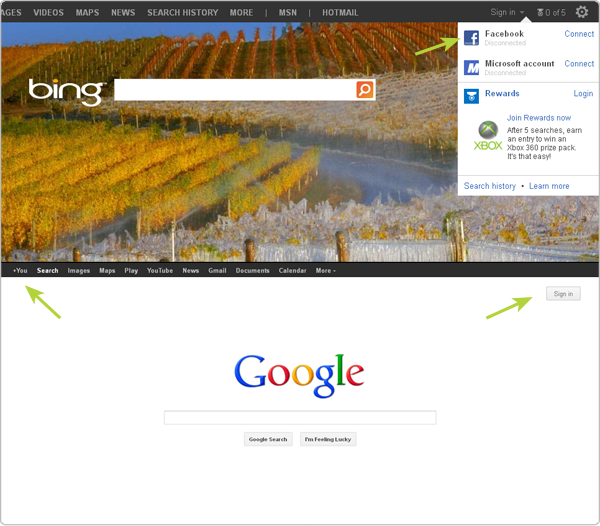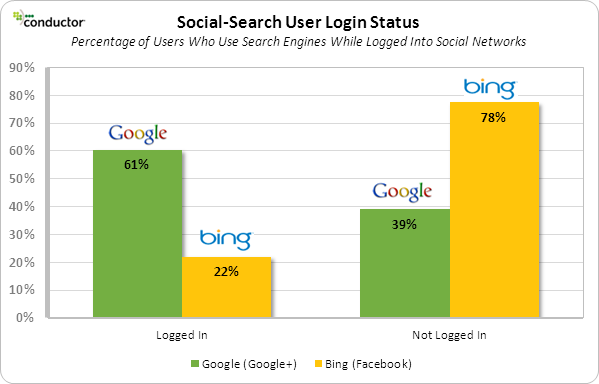Google Searchers 3x More Likely To Be Logged-in Than Bing
A study we recently did at Conductor found that search engines still have work to do when it comes to integrating social search results in the SERPs: 62% of respondents reported they do not want or gain benefit from social results mixed in with search results. In the same survey, we asked the 150 respondents […]
A study we recently did at Conductor found that search engines still have work to do when it comes to integrating social search results in the SERPs: 62% of respondents reported they do not want or gain benefit from social results mixed in with search results.
In the same survey, we asked the 150 respondents about their social network login behavior when using a search engine. Specifically, we wanted to know the frequency users are logged-in to the search engine’s featured social network (Google and Google+; Bing and Facebook) when searching on the engine.
The data showed that 61% of Google searchers are logged into a Google service when using the search engine, compared to 22% of Bing users.
Here, Google is showing their clear advantage in owning a unified user login across all their products and services; a user that is logged-in to any of their services is also logged-in on their search engine and social network.
In looking at this further, we were reminded of a research study we did earlier this year on [Not Provided], where we asked respondents to indicate their primary email program.
Interestingly, the results seem to support the Google unified login impacting the percentage of users logged-in while searching: almost the same percentage of respondents who reported being logged in while searching (61%) reported using Gmail as their primary e-mail on the Web (57%).
It’s About More Than Users Being Logged-In When Searching
So what does this all mean? The major search engines have been continuously working towards formulating a cohesive response to searcher queries that extends beyond the web index and to do this, they need to take into account semantic social network content and behaviors and alternative data sources.
Creepiness factor aside, this means that Google has a substantial advantage over Bing in collecting user information like social data and behaviors due to the greater rate at which searchers are logged-in to Google’s services vs. connecting Facebook and Bing.
It’s not yet clear the extent to which searchers actually want social data integrated into search results or how good of a job the engines have done in integrating the two thus far. But the extent to which users are logged-in when searching on Google vs. Bing suggests that if social and search continue to merge together, Google will be at a significant advantage.
Contributing authors are invited to create content for Search Engine Land and are chosen for their expertise and contribution to the search community. Our contributors work under the oversight of the editorial staff and contributions are checked for quality and relevance to our readers. The opinions they express are their own.
Related stories


